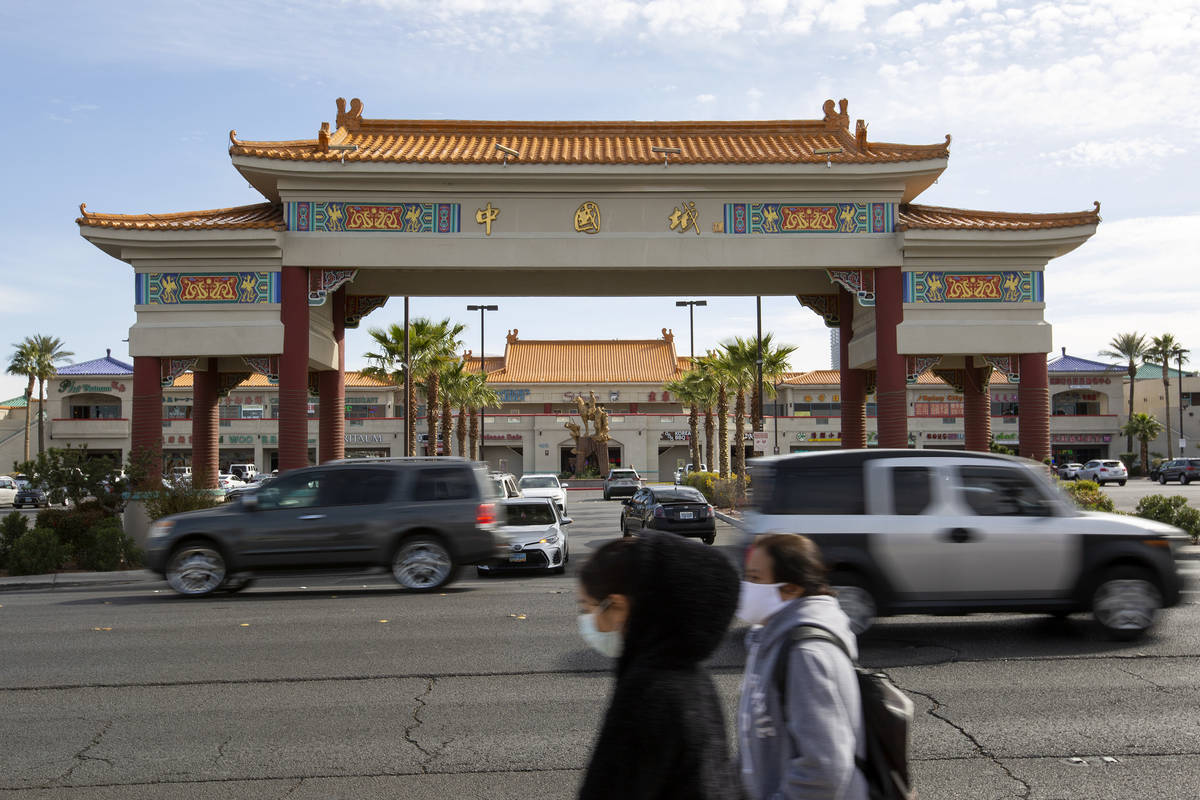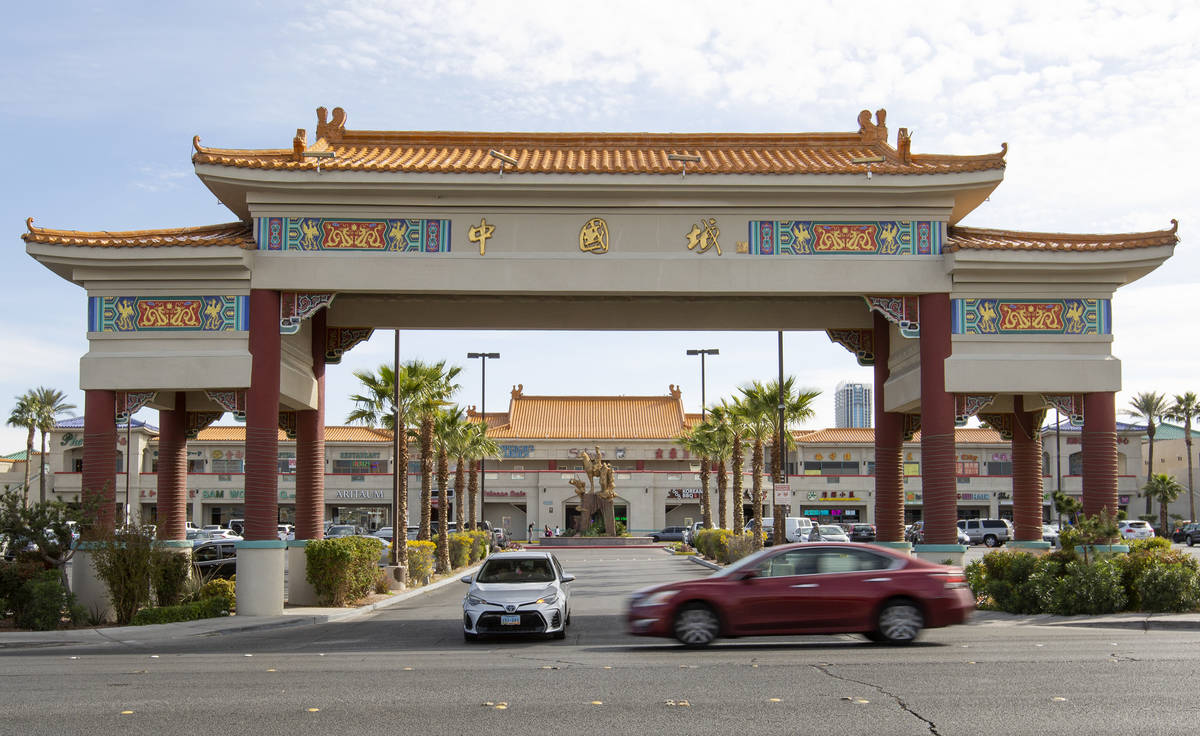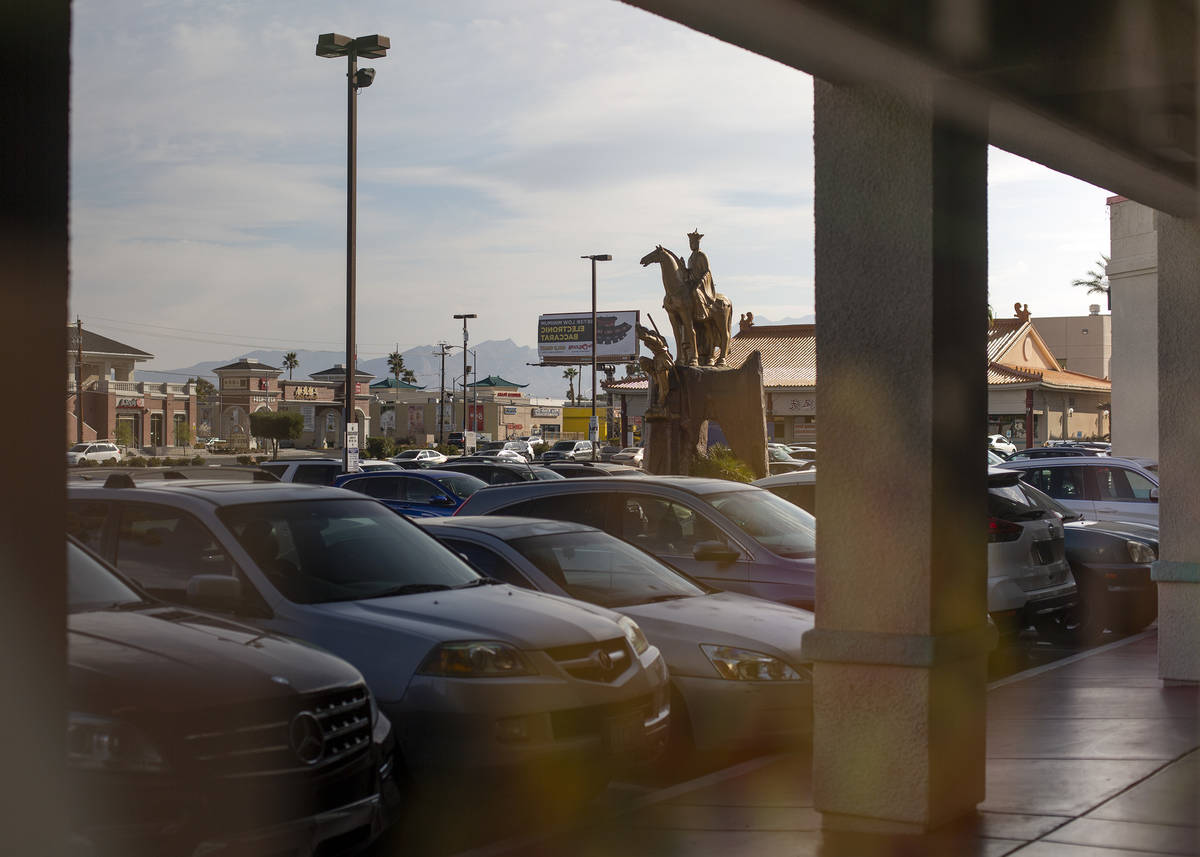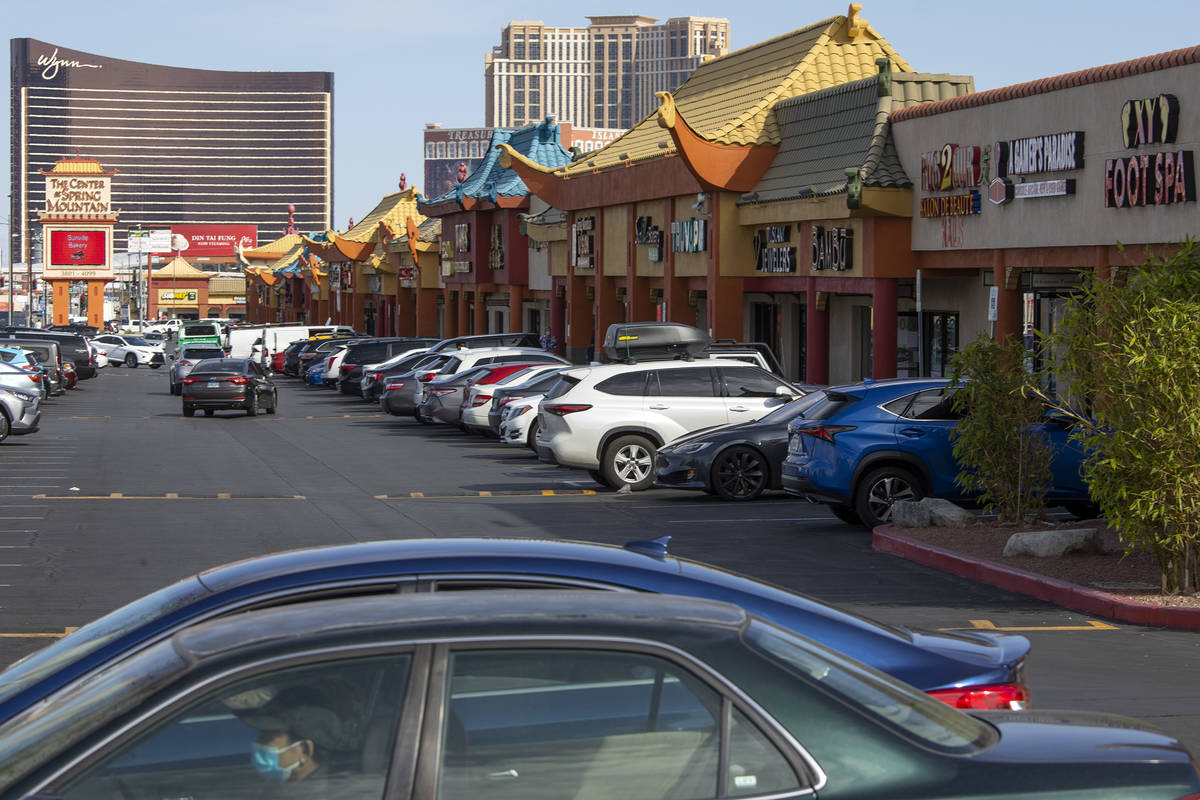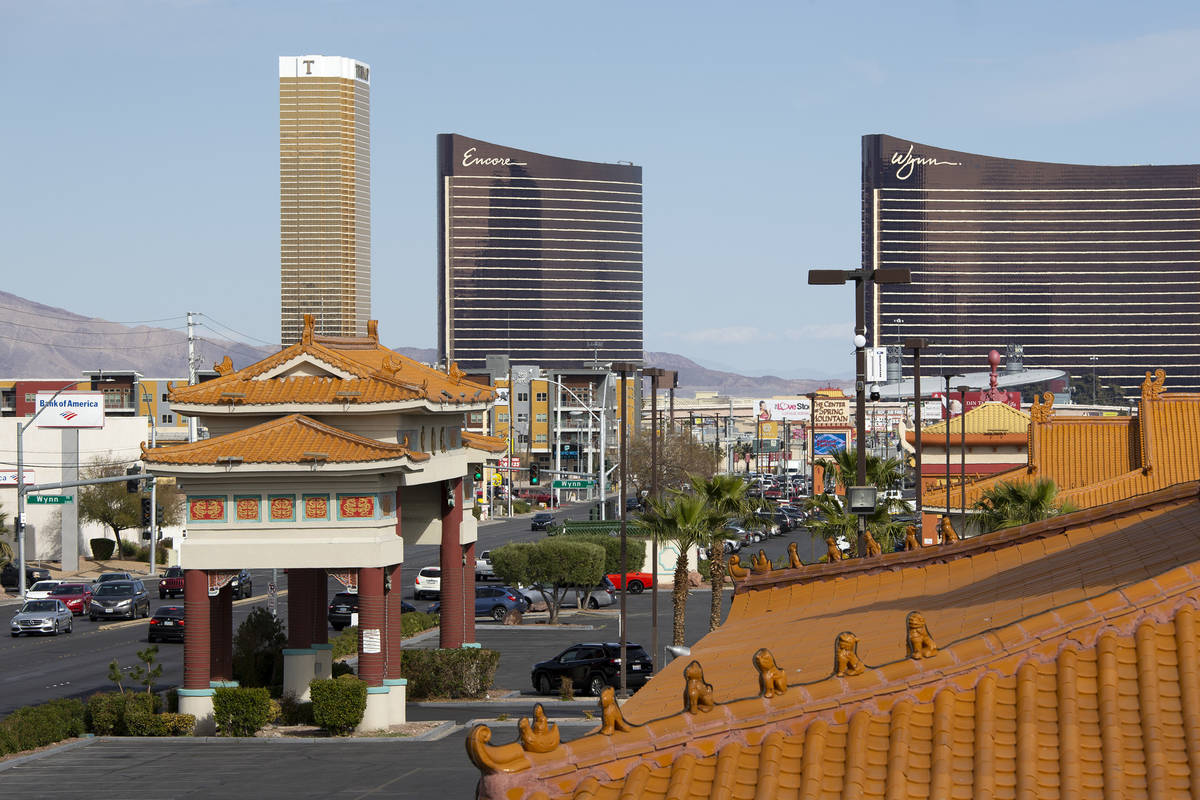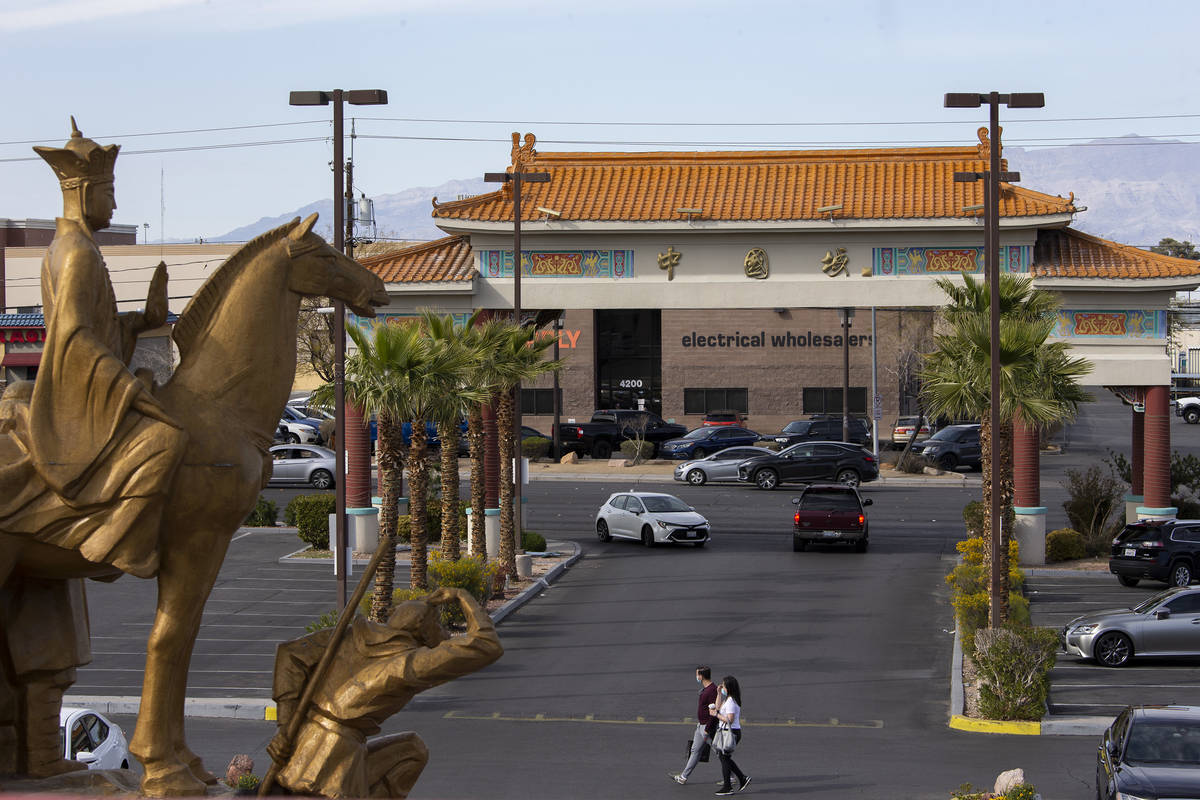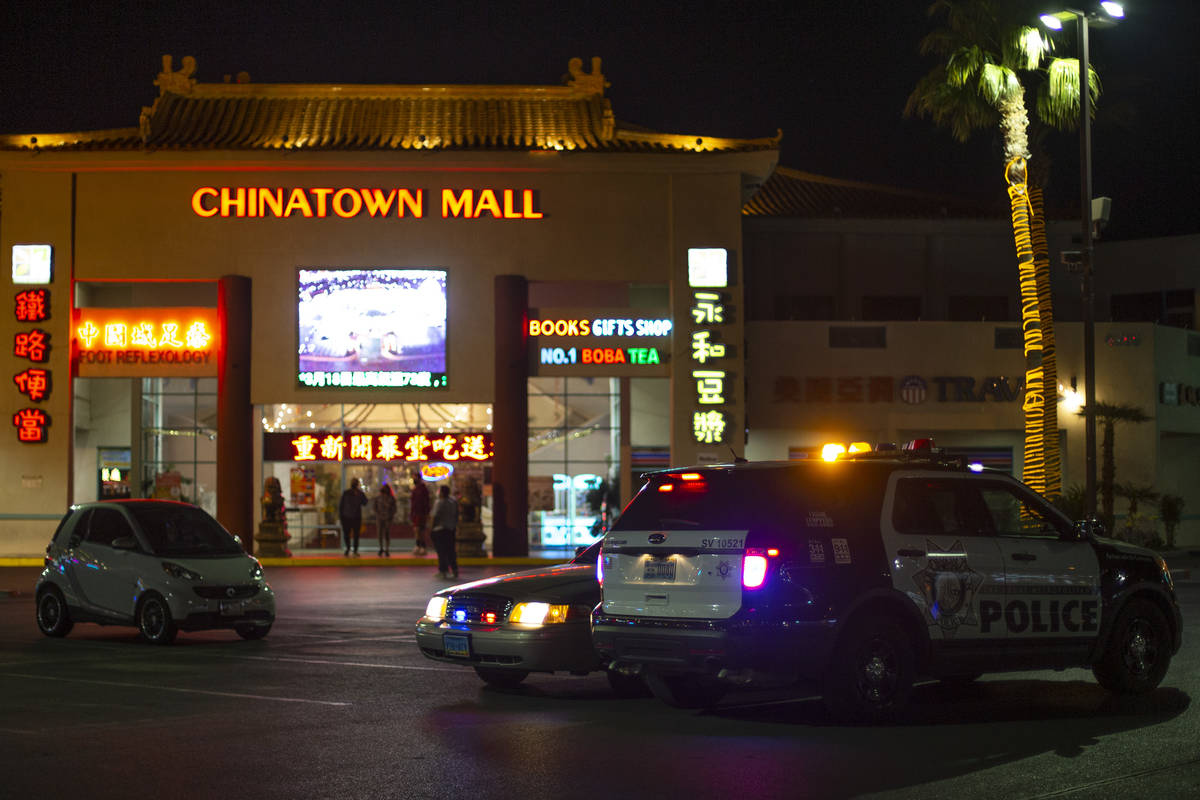Las Vegas Chinatown business owners on edge after Atlanta shootings
During a quiet gap between clients on Wednesday afternoon, the man of Chinese descent leaned back into his office chair, arms folded across his stomach, gaze locked on a wall of monitors.
From his vantage point, at his desk inside his tiny office, he had a 360-degree view of his Chinatown massage parlor thanks to an upgraded security system he recently had installed.
“I’m very careful,” the owner said from behind his desk. “I’m always prepared. I always take care.”
The business owner has been on edge over the past year as hate crimes against Asian Americans and Pacific Islanders have spiked because of disinformation about the COVID-19 pandemic.
At times throughout the pandemic, he wondered if he was being too paranoid. But on Tuesday night, he said, his fears were validated after a series of shootings at three Atlanta-area massage parlors left eight people dead, many of them women of Asian descent.
The Las Vegas Review-Journal has granted anonymity to the man, who fears for his safety.
“Now I will always watch the camera,” he said Wednesday. “Always have to be alert.”
In response to the Atlanta shootings, the Metropolitan Police Department has increased patrol efforts in the Chinatown corridor to deter “copycat” crimes. The multicultural district features Las Vegas’ largest concentration of Asian businesses and is situated along Spring Mountain Road, extending from Rainbow Boulevard to Valley View Boulevard.
‘Blanket of safety’
According to Metro Undersheriff Chris Darcy, the department’s decision to deploy extra police units was made after conversations with several business owners in the cultural corridor, who, like the massage parlor owner, expressed fear for their safety.
“We’re just really providing a blanket of safety and a sense of safety and security based on what happened in Atlanta,” Darcy told the Las Vegas Review-Journal on Wednesday.
More than a dozen business owners and employees, expressing concern for their safety and the safety of their families, declined to speak to the Review-Journal on Wednesday afternoon for this story. Before politely hanging up the phone at a Chinatown massage parlor, a woman who identified herself as the owner said, “We are very panicked. We don’t cause trouble, but we are attacked, and we need more protection. Some of us don’t speak good English, so it is hard for us to have a voice.”
The undersheriff said a “large surge of resources” was first deployed in the area late Tuesday, and another splash of marked patrol units was expected in the corridor again Wednesday night.
“I plan on keeping this in place a while,” he added, “based on the increased threats.”
Darcy said the department’s nightly presence in the corridor will be visible to create a “deterrent effect, if there’s any type of copycat or anybody else that’s contemplating the same type of behavior” as the Atlanta shooter.
‘It is hateful’
Cherokee County Sheriff Frank Reynolds said Wednesday it was “too early” to characterize the shootings as hate crimes, “but the indicators right now are it may not be.” The suspect, a 21-year-old white man, was charged Wednesday with eight counts of murder and one count of aggravated assault.
Atlanta Mayor Keisha Lance Bottoms said that regardless of the shooter’s motivation, “it is unacceptable, it is hateful, and it has to stop.”
Georgia state Rep. Bee Nguyen, the first Vietnamese American to serve in the Georgia House, has described the shootings as an “intersection of gender-based violence, misogyny and xenophobia.”
Over the past year, 3,795 hate crimes against Asian Americans and Pacific Islanders were reported to Stop AAPI Hate, a reporting center launched on March 19, 2020, by the Asian Pacific Planning and Policy Council, Chinese for Affirmative Action and San Francisco State University’s Asian American Studies Department.
According to the reporting center’s most recent national report — released Tuesday ahead of the Atlanta shootings — hate crimes were reported in all 50 states and in Washington, D.C., between March 2020 and February.
Crimes against people of Chinese descent made up 42 percent of the reported incidents over the past year, the report showed, while 15 percent of the reported crimes came from those of Korean descent, 9 percent from those of Vietnamese descent and 8 percent from those of Filipino descent.
There were no hate crimes against Asian Americans or Pacific Islanders reported to Metro between 2017 and 2020, according to department statistics, though, in the past, Metro has acknowledged that, historically, the Asian American community has been hesitant to report crimes to the police.
Contact Rio Lacanlale at rlacanlale@reviewjournal.com or 702-383-0381. Follow @riolacanlale on Twitter. The Associated Press contributed to this report.




